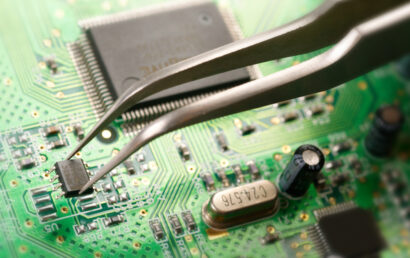Maintaining Mold Lubricity With Thermal Spray Coatings
While electroless nickel and hard chrome are still being used for corrosion protection and to fight mold wear, there is a lot more to the battle than just those two methods. Some tools require more lubricity or protection than those methods can offer.
The ability of a mold to let go of a substance or material freely and easily is referred to as mold lubricity. There are very few circumstances under which the adherence of a substance to a mold would be favorable or preferred, so the higher the mold lubricity of a mold’s surface, the better.
If you are the person in your company who is in charge of buying molds, you’re going to need to be knowledgeable in more than just the types of steel from which molds are made. You will need to be familiar with treatments and coatings that can add performance or prolong tool life. As an example, for easier resin flow, lubricity plays a major role.
The Problem with Molds
Injection molds can be broken down quickly by today’s plastic materials. Mineral and glass fillers are definite challenges to mold maintenance, but other challenges include the following:
- Flame retardants
- Metal powders
- Wood fibers
- Rice hulls
- Resins
- Various additives
Often accompanying abrasive wear are the aggressive conditions of moisture acidity and outgassing. To expensive tooling, these are most definitely potential insults.
To make matters even worse, more frequent use of moving slides and cores, as well as more intricate, tinier flow passages are involved in the growing complexity of today’s tools. To keep molds operating longer between repairs, a wider variety of mold coatings have been developed to battle all of the above stated factors.
Anything But the New Kid in Town
There’s nothing new about trying to achieve better mold lubricity through tried and true coatings using electroless nickel or hard chrome. They can, in fact, be better for your purposes than today’s high-tech, newer coatings.
Hard chrome:
- With a hardness of 72 RC, hard chrome has definite advantages and can be applied at low temperatures. On your tooling, any SPI finish can be achieved when it’s applied in its purest form.
- For electrical circuit breaker molds, hard chrome is frequently a good choice. That’s because, up to as much as 40% glass is what makes up the materials contained within electrical circuit breaker molds.
- Unfortunately, hard chrome can present a cost problem. Additionally, because chromium is a carcinogen, chrome’s environmental impact is another possible drawback.
- For years, as with hard chrome, successful use of electroless nickel has been realized by numerous companies and industries. Where materials like halogenated fire retardants or PVC create corrosive offgassing, the use of electroless nickel was particularly successful.
- An orange dust can commonly be produced by resins. Right before your eyes, this can corrode the unprotected mold. When such metals are used to mold products for the medical or electronic industry, they can’t tolerate any oxidation byproduct presence.
- Oxidation is resisted superbly by electroless nickel. At 50 RC hardness, electroless nickel works well even in tight areas of detailed parts in the fight against corrosion.
New and Improved Options
There are, of course, options to promote mold lubricity that are new and improved. Some of these include the following:
- A nickel phosphorous, electroless matrix containing particles of boron nitride also referred to as a nickel-PTFE coating (an RC hardness of 54 and a very low coefficient of friction)
- TIN or titanium nitride (requires high temperatures for application and can be hard to strip)
- Diamond chrome (offers protection on an exceptional level)
- Nickel cobalt alloy coatings (to hard chrome, this is a more economical alternative)
Need Better Mold Lubricity? Turn to A&A Coatings
At A&A Coatings, we have the coatings you need to protect your molds. Offering high levels of mold lubricity, our thermal spray coatings assist numerous businesses. Truth be told, you would be hard-pressed to find an industry that isn’t served by our thermal spray coatings in one way or another.
Can thermal spray coatings be used in your industry? They probably already are. For more information, contact A&A Coatings today.



